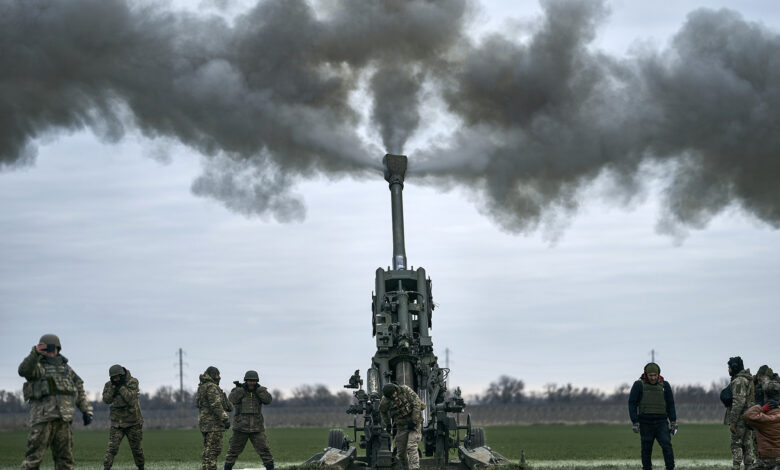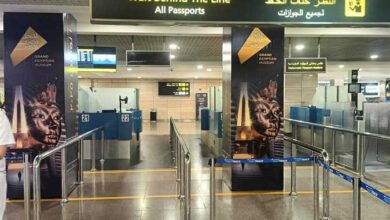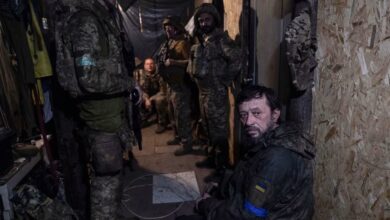
The Munich Security Conference began last Friday and continued until Sunday. The conference, held annually in the German city of Munich, is the most important conference in the world that discusses issues related to security in the broadest sense.
The importance of the conference also lies in the fact that it brings together a mixture of officials from the leaders of states and governments, in addition to experts and leaders of public opinion.
This year’s conference was very significant, as it was attended by a large and high-level audience that included about 40 heads of state and government, including the German Chancellor, the French President, the British Prime Minister, the Vice President of the US and other leaders of western countries – in addition to politicians and experts from nearly 100 countries.
This distinguished presence differed from the Davos Forum, which saw weak attendance and low interest this year – confirming that security issues have become a priority in the world’s concerns, and not issues of economic globalization discussed in the Davos Forum.
The conference sessions were broadcast live on TV channels and platforms on the Internet, and are still available to watch for anyone interest in benefiting from the knowledge and analysis shared in this event.
Despite the multiplicity of issues on the conference’s agenda, the focus this year was on the Ukrainian war – the conference was held almost a year after the start of the war.
Last year’s conference opened days before the Russian invasion of Ukraine, and the participants at the time called on President Putin not to attack Ukraine, and warned of the consequences of the war.
This year, interest in Ukraine appeared in painting the hotel building in which the conference was held in the colors of the Ukrainian flag.
For the first time, in two decades, the conference did not invite Russian officials to join.
The conference discussions, especially with regard to Ukraine, can be summarized in the following points:
First: The west’s determination not to allow Putin to win the war, as French President Macron said that Russia should not win this war and Russian aggression must fail.
US Vice President Camilla Harris spoke of Putin’s victory meaning the victory of the logic of the use of force in the world. For if it succeeds in Europe today, it will extend to Asia tomorrow where she meant China and its relation with Taiwan, and that the US has a strategic interest in preventing this from happening.
Second: A pledge to continue providing military aid to Ukraine.
German Chancellor Olaf Scholz stated that the war could continue for several years and noted that western arms shipments to Ukraine are not prolonging the war – rather the opposite is true. According to him, the sooner President Putin realizes that his goals will not be achieved, the opportunity for the occupation forces to withdraw would increase.
Scholz boasted that his country is longer hesitant to provide tanks to Ukraine, and has granted the country with more than 12 billion euros in 2022, welcomed more than a million Ukrainian refugees, and will provide more.
Third: The west believes that this is not the time for dialogue with Russia. According to President Macron, it is the resistance of the Ukrainian people and army and allowing them to carry out a counterattack that will enable credible negotiations on the terms that Ukraine chooses.
Fourth: There is no single vision for peace among western countries. Some believe that peace is linked to Russia’s withdrawal from all Ukrainian lands, including Crimea, which it annexed before, while others leave the issue of peace terms to be determined by the Ukrainian government alone.
French President Macron presented a balanced position, as he said that no one will change geography and Russia will always remain on the European continent.
Therefore, there can be no permanent and complete peace on the continent without dealing with the Russian issue.
Responding to those who claim that peace will not be achieved as long as Vladimir Putin remains in power, Macron stated that he does not believe in the policy of regime change.
Fifth: Many leaders of western countries indicated that neutrality in the Ukrainian war is not an option, especially with regard to supporting the invasion and violating the sovereignty of an independent country. They reject invasion and occupation, but at the same time they want to intensify efforts to reach a peace agreement, and do not want to be pressured to choose between Russia or the West.
In short, the Munich Security Conference deals with the Ukrainian war as the main issue in the world, and western leaders talked through it about the escalation against Russia and that this is not the time for dialogue with it to reach a peace agreement, or as President Macron mentioned that they were in the process of a protracted conflict, and therefore no one knew when it will end anyway.
About Mohamed Kamal
Mohamed Kamal is a professor of Political Science at Cairo University who has written a variety of articles on political topics, including “New Realism in the Middle East”, “A test of American strength in punishing Russia”, “The end of the American project” and many more.
He has primarily written for Al-Ahram and Al-Masry Al-Youm.



